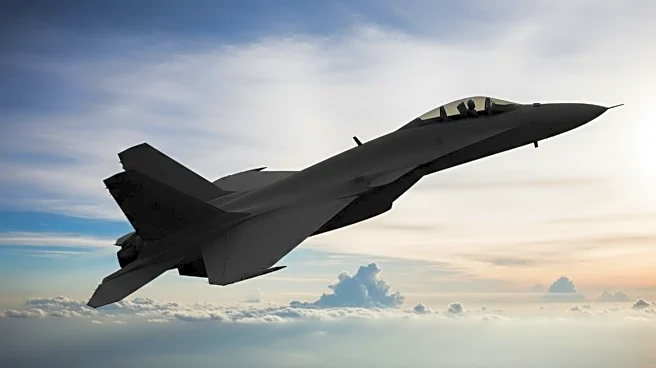What's Happening?
During a Senate Armed Services Committee hearing, the nominee for the next Chief of Staff of the U.S. Air Force was urged to address the declining mission-capability rates and rising sustainment costs of the F-35A fighter jet. Senators expressed concern over the readiness rates of these advanced aircraft, which are falling short of Pentagon goals. The nominee acknowledged the issue and highlighted the lack of spare parts as a contributing factor. Additionally, the U.S. is deploying approximately 200 troops to Israel to support and monitor the Gaza ceasefire deal, as part of a broader international effort.
Why It's Important?
The readiness of the F-35A fighter jets is crucial for maintaining U.S. air superiority and fulfilling defense commitments globally. Addressing these issues is vital for operational effectiveness and cost management. The deployment of U.S. troops to Israel signifies a commitment to international peace efforts and stability in the Middle East, potentially influencing U.S. foreign policy and military strategy in the region.
What's Next?
The nominee is expected to work on improving the F-35A's readiness rates by addressing spare parts shortages and other logistical challenges. The U.S. military's involvement in the Gaza ceasefire monitoring may lead to further diplomatic engagements and collaborations with international partners to ensure lasting peace.
Beyond the Headlines
The challenges faced by the F-35A program highlight broader issues in military procurement and sustainment strategies, which may prompt reviews and reforms. The U.S. involvement in the Gaza ceasefire could impact future diplomatic relations and peace negotiations in the Middle East.









